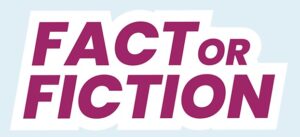Rheumatoid Arthritis
There are thought to be 10 million people with some form of arthritis in the UK. It is the most common cause of disability in the UK and can affect people of all ages, not just older people.
The word “arthritis” means ‘inflammation in the joints’. Inflammation is a difficult thing to imagine and describe, but it is part of the body’s normal healing process, just like the healing of a cut or a bruise. Inflammation can be thought of as being like a bruise with swelling on the inside of the joints, and this can cause pain and stiffness.
A normal joint is the connection between 2 bones. The ends of the bones are covered by a layer of cartilage which acts as a shock absorber to protect the bones form damage. A thin membrane called the synovial membrane lines the joint and produces a small amount of joint fluid called synovial fluid which helps to lubricate the joint. The joint capsule holds the joint together loosely. Strong ligaments (not shown) help to anchor the bones together firmly and muscles on top and across the joint the joint (not shown) move the joint in different directions.
The most common type of arthritis is osteoarthritis. This is often wrongly called “wear and tear” or “degenerative” arthritis and is more common in older people.
In a joint with osteoarthritis, minor injury triggers the body’s healing process. This can cause the build-up of fluid inside the joint and the formation of new bone leading to swelling. Chemicals in the joint fluid can lead to thinning of the joint cartilage. Degeneration is a misleading word, as in osteoarthritis the body is attempting to repair itself and can often cause no pain at all.
One reason for the pain and stiffness of osteoarthritis is thought to be due to nerve endings in and around the joint becoming more sensitive. These nerve endings can sometimes become more sensitive and can then continue to cause pain, even when the original cause of pain has settled.
The next most common types of arthritis are rheumatoid arthritis, where the immune system attacks the joints, causing swelling, pain and stiffness, and gout which is caused by crystals of uric acid irritating the joints. Rheumatoid arthritis and gout are two examples of “inflammatory arthritis” but there are many other forms of inflammatory arthritis including psoriatic arthritis and spondyloarthropathy (including ankylosing spondylitis).
Rheumatoid Arthritis – Arthritis Action
Personal stories – Arthritis Action
Mental Health and Rheumatoid Arthritis: https://nras.org.uk/wp-content/uploads/sites/2/2023/05/Emotional-First-Aid-Strategies.pdf
https://nras.org.uk/resource/nras-live-mental-health-wellbeing-with-rheumatoid-arthritis/
Apni Jung (translates to “Our Fight” in Hindi) is an initiative that aims to engage with RA patients within the UK South Asian community – encouraging them not just to seek medical help for their condition but also to gain an understanding about RA and the benefits of continuing to take prescribed medication to improve outcomes. For more information: https://nras.org.uk/apnijung/

Help us dispel the myths around Rheumatoid Arthritis (RA) by taking our #RAFactOrFiction quiz. https://nras.org.uk/factorfiction/
It’s important that we include prevention and support in the workplace for musculoskeletal (MSK) disorders which can include back pain, neck or arm strains and diseases of the joints. All parts of the workforce can be affected by MSK, it is one of the most common reasons for sickness absence along side poor mental health.
According to a work-related musculoskeletal (MSK) disorders in Britain report by the Health and Safety Executive:
- 470,000 workers suffer from MSK symptoms
- 85,000 of these stated symptoms were caused or made worse by the COVID-19 pandemic
- Over 18 days a year of MSK-related sickness absences are taken on average per employee.
MSK symptoms are often caused by work-related injuries such as incorrect handling, or not having equipment in the workplace personally adjusted. With a recent increase in staff working from home, unsuitable home office set-up has also been a large contributor to the issue.
MSK disorders can include back pain, neck or arm strains and diseases of the joints. All parts of the workforce can be affected by MSK. It is one of the most common reasons for sickness absence, there has been an increase in the number of staff who stated they have suffered from MSK problems resulting from work-related activities. It is therefore vital that employers focus on prevention and early intervention to effectively managing MSK disorders.
Prevention and early intervention
Preventing MSK disorders and long-term absences should be a high priority for any organisation. To effectively manage MSK diseases, organisations are advised to implement a robust MSK policy to support staff with this issue.
Ways to prevent work-related injuries include:
- regularly checking the accident book and sickness absence records to spot trends and MSK hot-spots in the workplace
- pinpointing the root causes of the trends you identify. Do staff have sufficient and suitable equipment to carry out their roles? Are there staffing shortages causing additional pressure on employees and increasing risk of injury?
- personalising your approach to suit the nature of the working environment. For example, surgeons may require different intervention and equipment to prevent back injuries than office workers and porters
- reviewing risk assessments regularly and when necessary
- having information and advice on work-related injuries and MSK disorders readily available
- providing work-station assessments for employees, including those working from home, and ensuring these are regularly reassessed upon changing circumstances. Read our enabling and supporting staff to work from home page for more information
- raising awareness of the importance of regular movement and exercise to aid prevention. Put dedicated time into calendars to remind staff to move away from desks and stretch regularly. This is particularly important for staff working in office settings, and for those required to stay at their desk with limited opportunities to move.
- ensuring staff who may be particularly vulnerable to have priority access to risk assessments and treatment. For example, staff returning from maternity leave who may be breastfeeding, and those with underlying health problems that are risk factors for MSK conditions.
Upskill your staff and managers
It is important that staff understand how to prevent injuries, and spot and manage symptoms of MSK disorders. It is found that managers often find it difficult to deal with colleagues with MSK symptoms and to understand their work capacity. It is also suggested that organisations should motivate employees to look after their health and make changes at organisational level so that managers can manage supportively.
Employers should therefore:
- create a culture that enables managers to be compassionate and supportive
- encourage managers to have regular health and wellbeing conversations with staff to help identify any issues in good time
- train both staff and managers to understand how to prevent injuries and spot and manage symptoms correctly
- create pathways through occupational health/physiotherapy where staff can quickly and easily access services to treat and manage their symptoms
- use multiple channels to raise awareness of available support and implement myth busting into your approach.
- enable your staff to speak up when they feel working conditions are unsafe
Published: 02 July 2023


